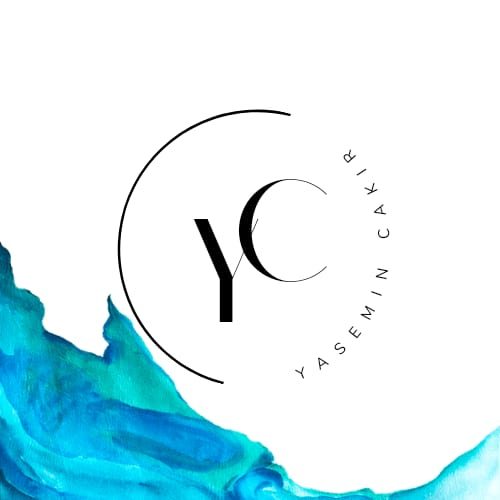Many times I have touched on how healing isn’t a linear journey. Whether this be physical injuries, emotional trauma or mental health challenges, setbacks and doubts and the struggles throughout the process are rarely spoken of. One is seen to be in recovery and every day one is expected to progress; however this can often be far from the truth. In this blog, I’ll be delving into the difficulties of healing and recovery and the ‘behind the scenes’ images often left unportrayed.
Expectations vs Reality of Healing
I believe many seeing healing and therapy, treatments and medications as a ‘steadily progressive’ journey. One is prescribed medications and should feel better. One goes to therapy and should be improving and becoming ‘a better version of themselves’ each time, bounce backs should be immediately noticeable and people will not understand if there are gaps or inconsistencies in the journey to recovery.
Healing can often feel like one step forward and two steps back, with my understanding of mental health and my self awareness growing, but my depression and difficulties following closely behind. I can have two consecutively good sessions of therapy and be ‘better’ for a few weeks, before I dip again and can have consecutive 6 ‘bad weeks’ and the most difficult part of having to deal with these setbacks is understanding that I may not be able to return to who I was before. I understand that during my therapy and healing journey I may become further distressed than I was before the beginning of the journey and that it will take a lot of strength to be able to cope with the setbacks and realisation that I may feel 10 feet deeper than I started at, but that inevitably, I have made progress and that this is all a part of the journey, completely normal and to be expected.
The Emotional Toll of Setbacks
One of the most difficult emotions I am struggling with at the moment is guilt. In my moments of flashbacks, setbacks, a relapse into crisis, an extreme emotional breakdown, I feel guilty for the time that the professionals and my loved ones are spending on me, I feel guilty for the plans we have set in place not working, and I feel guilty for causing a disruption in my healing. I try to tell myself that this is part of the healing, as the intense nature of therapy and mood changes due to medication differences are likely to cause the resurfacing of traumatic events and difficult emotions, for us then to learn how to cope and manage these.
The Weight of Societal Expectations
“But you had therapy today didn’t you?”
“I thought your meds were sorted now?”
“But you were fine yesterday.”
These are all things that I have been told within the past week, when trying to portray my emotions and despite the caring and supportive possible aim of the questions, they are guilt-enticing and shaming. It makes me feel as if though my healing should have a timeline that I have to adhere to and any setback is a personal failure and something that I have caused myself. My healing is likely to be a life-long journey, as are the setbacks, the aim of the therapy and medication is not to eliminate my past experiences from my mind, but to help me cope with them better when the flashbacks and setbacks do occur.
The Importance of Compassion in Healing
As I touched on some externally asked questions above, it’d be unfair to pretend that these internal questions don’t also pop up.
“It’s been so long, why am I not better yet?”
“I’ve had a breakdown, that’s it, I have to start from the beginning again”
“Why is nothing working for me? What am I doing wrong?”
“Why does it still hurt?”
are all questions that I ask myself repeatedly and working on self-compassion has been one of the hardest steps in this journey. I have to remind myself, and whoever else may be reading this, that the emotions felt were valid on day 1 and will forever be so. Not many roads are straight easy paths and just because we’re in the lows of the valley feeling the wind working its best to push us off our feet, or our muscles are trembling from climbing to the peaks, the destination is to survive and each step made is progress.
8 weeks ago, I didn’t think I could survive another day, and here I am in a new season, watching the leaves turn crimson red and fall to the muddy ground, writing a blog about how it is okay that in these 8 weeks, I’ve probably felt like I couldn’t survive another day, multiple times each day because I’m still here. I can do it, I have done it, I will be able to do it again.

The purpose of this blog is to validate the bad feelings during healing, the moment of self-doubt, hatred even at times, the confusion and pain, anger and isolation is all normal. So far, my healing journey has been more difficult than it has been euphoric, but I have still done 8 more weeks than I thought I could do, and that for me, is worth celebrating. Every step is worth celebrating. I have dealt with some of the most difficult emotions of my life, the most heightened they have all been at once, the emotional turmoil and exhaustion of this as well as having to actively participate and work on my healing. There is no magic wand unfortunately, and things will take time and effort, but I am here to remind myself and you, that we are worth that time, that effort.
Only we can define what healing looks like for ourselves and every journey is valid, worthy of praise for the effort it takes and recognition for the strength required to face the setbacks, relapses, moments of doubt, fear, anger of confusion on the journey.
I am one of the most non-confrontational people in the world. It terrifies me. I’m the opposite of what society would call a ‘Karen’ and even if I had a mouldy plate full of rotting bugs in my meal, I’d simply pay, even tip and leave. If I get scammed (happened a few times) I don’t take it any further because I feel bad for the people that could face prosecution and I don’t want to ever negatively contribute to someone having a negative experience or their mental health deteriorating; however when speaking to IRS (Initial Response Service, a 24/7 service for those in mental health crisis) a couple of weeks ago, I ended up hanging up on them because I was crying down the phone in crisis begging for help where I was met with the response of “It does take time Yasemin…” and despite me saying the exact same sentences to myself multiple times and hearing this ten times more from my own therapists and other mental health professionals without being triggered, it was the worst thing I could have heard at that time and it only caused my situation to deteriorate. I required empathy, I required a more nuanced and nurturing response. We are all aware that it ‘takes time’ because many of us are on year XYZ of struggling with these difficulties; we need validation in the moments of difficulties that what we are going through is normal to experience, that it does not mean any of the progress has been undone but rather that this is another step in the journey that is currently being walked through, and that there is support on the path to provide us that support to put one foot in front of the other.

With an estimated 50-60% of patients with trauma-related mental health conditions suffering from ‘setbacks’ or ‘relapses’ during the healing process, we are not alone in our feelings and the professionals around us are likely expecting us to raise these concerns and struggles we have with them, so they can further support.
Since the IRS incident, I have access to additional treatment with intervention from additional teams and more frequent contact with my professionals – only for a short time to help me manage this ‘relapse’ but knowing that I can be honest in my feelings and that this will not be met with criticism or judgement had been a saviour for me. I know I am making progress, and I know that progress can often hurt, but it is progress regardless and for this, I am proud of myself.
Healing may be tough, but so are we and anyone resonating with this will have already come so far in their journey from the first time they realised they needed help. It may have been years, even decades, and of the effort given should be celebrated.

Moving Forward with Patience and Strength
If there’s one thing I’ve learned, it’s that healing is as unique as the individuals going through it. Some days we soar, some days we crawl, and some days we feel completely stuck. But each of these moments is part of the greater picture—one that doesn’t demand perfection but does ask us to keep going, to keep showing up, even if it’s messy.
It’s important to remember that every step, every tiny bit of progress, is worth celebrating. Even when the setbacks feel like they overshadow your growth, remind yourself: you are still here, you are still trying, and that in itself is something to be proud of. Healing isn’t about becoming someone new—it’s about embracing who you already are and giving yourself the compassion you deserve.
The Founding Father of the Republic of Türkiye- Atatürk once stated: ‘The strength that you require may be found in the noble blood running through your veins’ and for me, this is a quote I try to remind myself in my darkest moments. I have survived every day I thought I couldn’t, and I owe myself a pat on the back for doing so, as does anyone going through a recovery journey, physically, mentally or both. We should be proud of those battling the healing journey and act with empathy, support, consideration and care. So, let’s celebrate our efforts, our resilience, and extend kindness to ourselves and others on this unpredictable path toward healing.
The strength that you require may be found in the noble blood running through your veins.
-Mustafa Kemal Atatürk, 1927.

